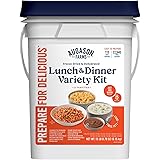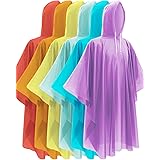The Top Emergency Preparedness Strategies for 2024
- Emergency plans and protocols
- Supplies and resources
- Communication strategies
- Training and drills
Hey there, friend! As we step into a new year, it’s crucial to talk about staying prepared for any emergencies that might come our way. From natural disasters like hurricanes to personal emergencies, being ready can make a world of difference. Let’s dive into some top-notch strategies for being prepared in 2024. Trust me, by the end of this, you’ll be itching to get your preparedness game on point!
Emergency Plans and Protocols
Importance of Having a Plan
First up, let’s chat about why having a solid emergency plan is a must. Imagine waking up one day to find out a storm is on its way. When you’ve got a plan in place, you don’t waste time stressing—you just react! Your family knows what to do, where to go, and how to stay safe. The peace of mind that brings is priceless.
In past experiences, I’ve found that having designated meeting spots and clearly defined roles can help in those chaotic moments. Make a habit of discussing your plan during family dinners or casual chats. Keeping it fresh in everyone’s mind is crucial!
And don’t forget about checking your local resources. Many communities offer templates or guidelines for creating an emergency plan that’s tailored to your area. That’s a great starting point to get everyone on the same page!
Creating Family Emergency Plans
Now, let’s get into the nitty-gritty of crafting those family emergency plans! Gather your crew—this is a teamwork deal. Work together to outline critical actions everyone should take in various situations, be it a fire, flood, or even a sudden job loss.
Consider having multiple plans based on different scenarios. I learned the hard way that it’s not just about natural disasters; sometimes, emergencies can be personal—like health crises or job changes. Having a plan for each situation ensures that you’re never caught off guard.
Lastly, don’t forget to practice! Just like learning to ride a bike, the more you practice your plans, the more second nature they’ll become. Schedule regular family meetings to review and update your plans as necessary.
== > What if ... Get a FREE Subscription to PREPARE
Testing and Reassessing Your Plans
Alright, let’s chat about testing. Just having a plan isn’t enough; you need to test it out! I like to think of it like a fire drill: everyone needs to know their escapes and roles. Set up mock scenarios and practice how your family would react.
Also, it’s vital to reassess your plans regularly. Life changes—new jobs, schools, and even pets! Keeping a dynamic approach allows you to adjust your plans to fit your current situation.
Having a ready-to-go emergency plan helps you feel empowered. You get this added confidence that you and your family can handle whatever comes your way. So, if you haven’t already, start getting those plans in order!
Supplies and Resources
Essential Emergency Kits
Let’s move on to supplies! When I first started prepping, I didn’t realize the importance of having dedicated emergency kits. Start with a basic emergency kit—think water, non-perishable food, first aid supplies, flashlights, and extra batteries. Over time, I’ve learned it’s better to over-prepare than under-prepare.
Make sure to customize your emergency kits to fit your family’s specific needs. If anyone has dietary restrictions, include appropriate food supplies. And if you have kiddos, don’t forget comfort items like their favorite toys or blankets!
Check your kits at least twice a year. It’s easy to let things expire without notice—trust me, I know from experience! Regular checking ensures you’re always stocked up and ready to roll.
Local Resources and Assistance Programs
In addition to your personal supplies, tap into local resources! Many communities offer support programs for emergency preparedness; some even provide free supplies or resources. I once discovered a local initiative that gave away first aid kits during community events. How cool is that?
Familiarize yourself with local emergency services and support organizations. They often have valuable insights into what resources you can leverage in your area. As they say, teamwork makes the dream work, and local connections can lead to great support systems when emergencies strike.
Consider joining local community groups focused on disaster preparedness. These groups often share knowledge, opportunities, and resources to help you stay informed and ready for anything.
Long-Term Preparedness Planning
Long-term thinking is crucial in building and maintaining your emergency supplies. A lot of folks tend to buy supplies all at once, but in my experience, it’s better to slowly add to your stockpile over time. This way, you can spread out the costs and ensure you’re getting what you genuinely need.
Set aside a little bit each month for emergency prepping. It could be a fun challenge to see how much you can accumulate over a year! Plus, it keeps the pressure off your bank account.
Remember, being prepared is not a one-time deal. It’s ongoing! Keep researching, stay informed, and always look for ways to improve your readiness for the unexpected.
Communication Strategies
Staying Connected During Emergencies
Communication is key; I can’t stress that enough! During emergencies, traditional forms of communication may fail, so it’s essential to have backup plans. For instance, I always keep a list of emergency contacts handy. You could even establish a group chat if your crew is tech-savvy.
Another tip? Set up a family code word. In times of panic, things can get intense, and using a code word can help ensure you get the right information without adding stress or confusion.
Don’t forget to have a plan for getting in touch with extended family or friends outside your immediate area. If local communication fails, it’s good to have someone who can help relay info!
Utilizing Technology for Communication
In today’s tech-savvy world, you can utilize various tools and apps designed for emergency communication. I’ve used apps that let you share your location during emergencies, which can be super helpful. These tech tools can help you stay connected even if traditional networks are down.
Stay updated with local news apps or emergency alert systems. Keeping informed through a reliable source is a big deal, especially when the unexpected occurs!
Technology is amazing, but remember to have non-tech solutions as well. Best to cover all bases in case the tech fails. Having a mix of traditional and modern methods ensures you maintain communication, come what may!
Practice Communication Scenarios
Just like testing your emergency plan, practicing communication scenarios is vital. Schedule family discussions about how you will communicate during different emergencies. Clear agreements eliminate confusion when it’s go-time.
Role-playing can also be helpful. It might feel silly, but acting out different scenarios lets everyone understand their roles and the importance of clear communication in emergencies.
Also, during these practice runs, you might discover gaps in your strategies. Be adaptable and willing to refine your communication plans based on what you learn. That flexibility is going to be a lifesaver when you really need it!
Training and Drills
The Value of Training
Let’s not overlook the importance of training. The more familiar you are with your emergency plans and supplies, the better prepared you’ll be. I can’t tell you how many times I felt completely unprepared until I put some effort into training. It all starts with the basics, so don’t be shy about diving in!
Consider looking for local workshops or classes that focus on emergency preparedness skills. Things like CPR classes or first aid training can turn you from a bystander into a lifesaver when it counts.
Level up your skills by practicing everything from fire drills to evacuations or even self-defense techniques. Each piece of training builds your confidence and competence, making you a formidable force in an emergency!
Regular Drills and Practice Sessions
Drills are a game-changer! I make it a point to schedule regular drills throughout the year. These don’t have to be overly complicated—just practice how you would react to different situations in a fun and engaging way. Think of it as a family bonding exercise!
Sometimes, I sprinkle in surprise drills to keep everyone on their toes. It helps us all remain adaptable and ensures that the strategies we’ve discussed become ingrained in our actions.
Evaluation is just as crucial as practice. After each drill, take a moment to debrief with your family. Discuss what went well, what could improve, and any thoughts everyone has. This reflection strengthens your strategy and encourages positive participation.
Creating a Culture of Preparedness
Lastly, you want to cultivate a culture of preparedness at home. The goal is to have preparation feel like a regular part of your family’s life rather than a chore. Share resources, tips, and stories to keep the conversation alive!
Involve kids by giving them small responsibilities—they’ll love being included! Teaching them about their roles in emergencies empowers them, making it less scary and more like a mission.
Celebrate your preparedness milestones together. Whether you packed an extra kit or just completed a training session, acknowledging those moments reinforces the culture of readiness and makes everyone feel proud to be part of it!
FAQ
What should be included in an emergency plan?
Your emergency plan should detail evacuation routes, designated meeting places, contact information for each family member, and roles for everyone during a crisis. Also, include first aid procedures and any other critical information pertinent to your family’s unique situation.
How often should I update my emergency supplies?
It’s a good rule of thumb to review and refresh your emergency supplies at least twice a year, especially non-perishable foods and medicines that might expire. This ensures everything is current, meaningful, and ready when you need it!
What training is recommended for emergency preparedness?
I recommend CPR and first aid training as foundational skills. Additionally, learning about local emergency resources, self-defense techniques, and how to use fire extinguishers can also enhance your preparedness repertoire.
How can we encourage kids to participate in emergency preparedness?
Make it fun! Involve them in packing emergency kits, creating the emergency plan, and even practicing drills. Using games or playful scenarios allows kids to feel empowered and less intimidated, instilling a sense of responsibility and teamwork.
Thanks for sticking around! Remember, being prepared isn’t just a task; it’s a lifestyle. Let’s kick off 2024 ready to tackle whatever comes our way. Happy prepping!
Related Content
- What happens if my emergency communication systems fail?
- How to Ensure Your First Aid Kit Covers All the Bases
- The Complete Guide to Emergency Documentation
- Grow Your Own Medicinal Herb Garden: Self-Sufficiency And Cost-Effective Remedies At Home
- How do I ensure my family’s safety through disaster preparedness?






